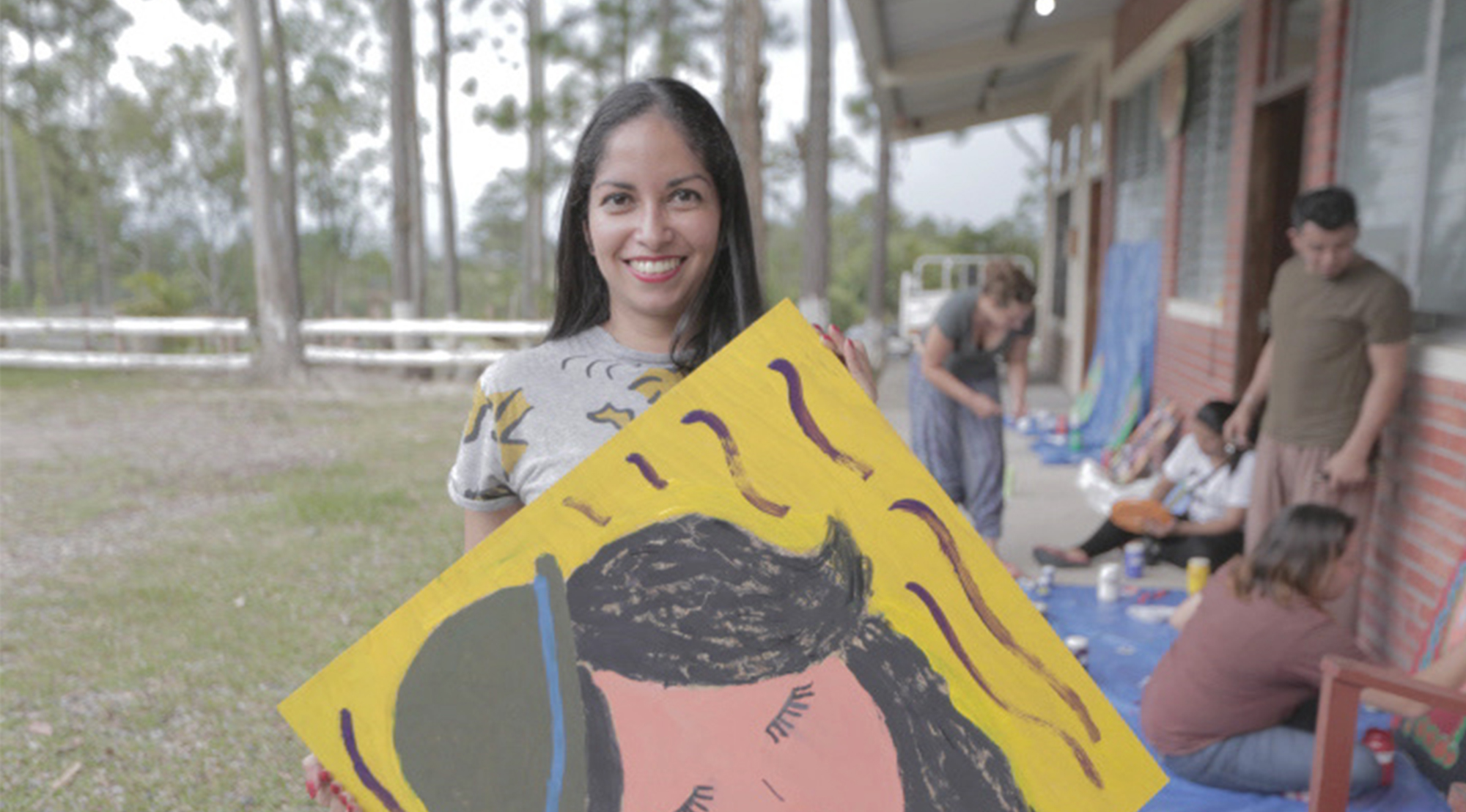The above sentiment was expressed by a participant in the psychosocial learning community in Honduras, by way of justifying the psychosocial focus of its work over many years. In spite of this continuous and successful commitment to the basic work performed, the psychosocial dimension has taken more of a back seat in the peacebuilding process over recent years. The social transformation at the structural, macro level, also referred to as “peace writ large,” was the focus of interest for a long time. Given the tremendous challenges at a global level, the psychosocial approach is receiving more attention again today as people search for innovative approaches.
KOFF, the Swiss platform for peacebuilding, saw the issue re-emerge in connection with the joint learning process regarding the room for maneuver afforded to civil society in Honduras. Together with partner organizations on the ground, KOFF organized the psychosocial learning community for human rights activists in Honduras during the summer of 2017. The significance of the psychosocial approach to the work done in contexts dominated by conflict and violence became clear on three levels previously described and touched upon in the SDC support material:
a) psychosocial projects
b) psychosocial organizational principles
c) the psychosocial approach as a method
The following sets out some of the findings from the psychosocial learning community in Honduras on these three levels, which will also be relevant to the ongoing work of KOFF.
Psychosocial projects
In Honduras, a great need emerged for people to come to terms, within a protected community, with the day-to-day experiences of violence, death, and impunity. Like in many contexts associated with conflict and violence, the entire population of Honduras is beset by feelings such as anxiety, anger, sadness, and helplessness. These collective experiences make it harder to come up with constructive solutions to conflicts or positive processes for change. A first step in giving people back some sense of agency is to acknowledge and allow space for such feelings. In a video about the learning community in Honduras, one participant describes her experience as follows: “Having had the chance to share my worst experiences in this safe space, the memories still hurt, but no longer feel damaging.” Stopping people seeing themselves as passive victims is one of the core functions of psychosocial work. The participants in Honduras also tried to accentuate the positive, with lots of laughter, playfulness, and dancing involved. Thanks to what we have learned from mindfulness and meditation, we know we become stronger in the areas where we devote our attention. This is why it is crucial, even in difficult situations, to make a conscious effort to enjoy positive moments and feelings without feeling guilty about doing so. “It is the helplessness which makes us ill. Dance is a playful way for us to connect with our positive and transformative potential,” explained a leader of a workshop from Honduras. For peacebuilding purposes, it is vital to exploit this potential more effectively.
Psychosocial organizational principles
The psychosocial approach is also important, in terms of conflict sensitivity and healthy working conditions, when it comes to providing organizational principles. In conflict zones and fragile contexts, having to contend with violence and destruction on a daily basis, the constant threat to one’s own safety, and a social climate of anxiety and mistrust can push workers to breaking point. This in turn can have a negative impact on their health and performance. In such cases, the psychosocial approach can serve as both an analytical tool and a guide on how to act. The learning community in Honduras made it clear, however, that only a context-specific concept of the psychosocial approach is likely to deliver results. Culturally informed notions of health and disease and social norms for dealing with feelings shape how the psychosocial approach is understood and practiced as an organizational principle. In the western hemisphere, findings from the field of neurology and concepts such as mindfulness, meditation, and yoga are gaining greater currency in the world of work. In Honduras, by contrast, the primary resources are the world view and rites of the Maya people and the Biodanza concept as developed in South America.
The psychosocial approach as a method
Another key finding from Honduras for the psychosocial approach within peace work takes us back to what we touched upon at the start. In the words of a participant in the learning community: “People say that Honduras is the most violent country in the world. I personally think the world’s most violent brand of capitalism can be found in Honduras.” His views highlight how essential it always is to analyze psychosocial dynamics in the context of wider political and economic conditions. Poverty, violence, and destruction have structural causes that need to be addressed. It is important therefore to see the psychosocial approach as a method that can also be used, in a systematic manner, with initiatives to develop the economy or in connection with security sector reforms. The decisive factor here is the transformative and empowering potential of the psychosocial approach. The SDC support material reads as follows: “Therefore empowerment not only means feeling better through understanding one’s own situation, but also through doing something about it and playing a genuine part in the social process – with a realistic prospect of changing prevailing power structures.” The psychosocial approach can give people and communities from various sectors the strength to help shape the complex and long-term processes of social change on the road toward peace and justice.


